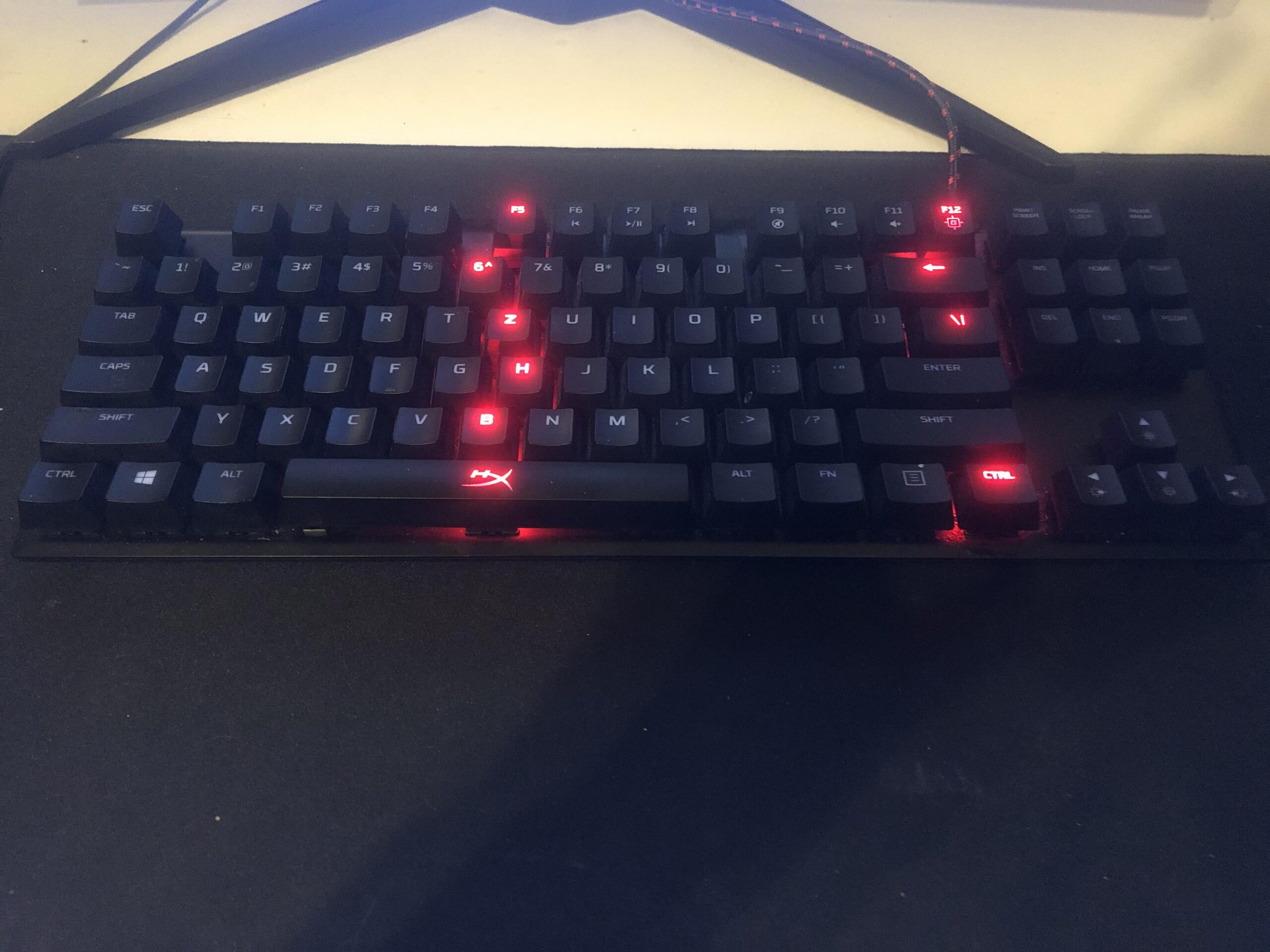A keyboard may stop working due to loose connections or outdated software, causing input issues. This can be frustrating when typing or using the computer for tasks.
It is important to troubleshoot the problem promptly to maintain productivity. When your keyboard randomly stops working, it disrupts your workflow and can lead to delays in completing tasks. In this digital age, a functional keyboard is essential for everyday computer use.
By identifying the root cause of the issue and implementing the appropriate solutions, you can ensure your keyboard works reliably. Let’s explore some common reasons why your keyboard may be acting up and how to address these issues effectively.

Credit: www.drivereasy.com
Common Causes Of Keyboard Malfunctions
Keyboard malfunctions can occur due to various reasons, causing it to randomly stop working. Issues like loose connections, outdated drivers, and software glitches can disrupt its functionality, interfering with your typing experience. Identifying and addressing these common causes can help resolve the problem and get your keyboard working smoothly again.
Loose Or Damaged Usb Connection
A loose or damaged USB connection can often be the culprit behind a malfunctioning keyboard. If the USB cable is not securely plugged into the port, the keyboard may intermittently stop working, causing frustration for the user. Damaged USB cables can also lead to unreliable connectivity, resulting in erratic keyboard performance.
Outdated Or Incompatible Keyboard Drivers
Outdated or incompatible keyboard drivers can trigger erratic keyboard behavior. When the keyboard drivers are not up to date or are incompatible with the operating system, the keyboard may randomly stop working, leading to interruptions in productivity. It’s crucial to ensure that the keyboard drivers are regularly updated to maintain optimal performance.
Software Glitches And Compatibility Issues
Software glitches and compatibility issues present common challenges to keyboard functionality. Incompatibility with certain software or compatibility issues between keyboard and operating system can cause the keyboard to malfunction unexpectedly. Addressing software glitches and compatibility issues is pivotal in maintaining a consistent keyboard performance.
Hardware Related Issues
When faced with the frustrating issue of your keyboard randomly stopping working, it is essential to consider the various hardware-related issues that could be causing this problem. Hardware issues can range from physical damage to connectivity problems or power-related issues.
Physical Damage To The Keyboard
- If keys are unresponsive or sticking, there may be liquid spill damage.
- Check for any visible signs of physical damage to the keyboard keys or casing.
- Replacing damaged keys or cleaning under them may resolve the issue.
Faulty Keyboard Connection Or Port
- Ensure the keyboard cable is securely connected to the port.
- Try using a different USB port to rule out a faulty connection.
- Test the keyboard on another device to determine if the issue is with the keyboard itself.
Power-related Problems
- Check if the keyboard is receiving power by testing it on another device.
- Replace the batteries or try using a different power source if it’s a wireless keyboard.
- Resetting the keyboard drivers or updating them can also address power-related issues.
Software Related Issues
When your keyboard randomly stops working, software-related issues could be the culprit. These problems can arise due to conflicts with third-party software, corrupted system files, and unresponsive keyboard settings.
Conflicts With Third-party Software
Some third-party applications may clash with your keyboard settings, causing it to malfunction. Check for any recently installed software and ensure compatibility.
Corrupted System Files
Corrupted system files can disrupt keyboard functionality. Performing a system scan or reinstalling the operating system may resolve this issue.
Unresponsive Keyboard Settings
If your keyboard settings are unresponsive, try resetting them to default or updating the keyboard driver to ensure proper functioning.
Troubleshooting Steps
If your keyboard randomly stops working, you’re not alone. It can be frustrating, but there are some straightforward troubleshooting steps you can take to get your keyboard working again. Here are some possible solutions to resolve the issue.
Check Usb Connection
First things first, ensure that the USB connection between your keyboard and the computer is secure. Try connecting the keyboard to a different USB port to rule out any port-specific issues. Using a different USB cable can also help if the cable is damaged.
Update Or Reinstall Keyboard Drivers
If the keyboard issue persists, consider updating or reinstalling the keyboard drivers. Visit the manufacturer’s website to download the latest drivers for your specific keyboard model. Uninstall the current drivers and install the newly downloaded drivers to see if it resolves the problem.
Run Keyboard Troubleshooter
Windows offers a built-in Keyboard Troubleshooter that can help diagnose and fix common keyboard problems. Go to Settings > Update & Security > Troubleshoot > Additional troubleshooters and run the Keyboard troubleshooter to see if it can identify and resolve the issue.
Common Prevention Methods
In order to prevent your keyboard from randomly stopping, it is important to implement some common prevention methods. These methods will help you ensure that your keyboard remains in optimal condition. By following these simple steps, you can avoid the inconvenience of a malfunctioning keyboard and ensure a smooth and uninterrupted typing experience. Let’s take a look at some of the most effective prevention methods below:
Keep Your Keyboard Clean And Free From Debris
A clean keyboard is less likely to encounter issues, such as keys getting stuck or not responding. Dust, crumbs, and other debris can easily find their way into the crevices of your keyboard, interfering with its functionality. To keep your keyboard clean, use a can of compressed air or a small brush to remove any dirt or debris. Regularly wiping your keyboard with a damp cloth can also help maintain its cleanliness. Remember to turn off your computer before cleaning your keyboard to avoid any accidental keystrokes.
Regularly Update Your Operating System
Keeping your operating system up to date is crucial in preventing random keyboard issues. Software updates often include bug fixes and security patches that can improve the performance of your keyboard and fix any compatibility issues. To ensure that your operating system is always up to date, enable automatic updates on your computer. By doing so, you can avoid potential keyboard problems caused by outdated software.
Avoid Spilling Liquids On Your Keyboard
Spilling liquids on your keyboard can lead to disastrous consequences. Water, coffee, or any other liquid can seep into the keys, causing them to malfunction or stop working altogether. To prevent this from happening, always keep liquids away from your keyboard. If a spill does occur, immediately power off your computer and disconnect the keyboard. Gently clean the affected area using a cloth and allow it to dry completely before reconnecting the keyboard.

Credit: www.drivereasy.com

Credit: www.reddit.com
Frequently Asked Questions On Why Does My Keyboard Randomly Stop Working
Why Does My Keyboard Randomly Stop Working?
Sometimes, a dirty keyboard can cause keys to stop working. Try cleaning it with compressed air or a gentle brush. Another reason could be a loose or damaged connection. Check the connection between your keyboard and computer and ensure it is properly plugged in.
Updating or reinstalling the keyboard driver can also help resolve the issue.
How Do I Fix A Keyboard That Won’t Type?
If your keyboard won’t type, first make sure it is connected properly. If it is wireless, replace the batteries or reconnect the Bluetooth connection. Restarting your computer can sometimes fix the issue. If none of these solutions work, you may need to replace your keyboard or seek professional assistance.
Why Is My Keyboard Not Being Detected?
If your keyboard is not being detected, first check if it is properly plugged in or connected. Restart your computer as this can sometimes resolve the issue. Try connecting your keyboard to a different USB port. If the problem persists, try connecting the keyboard to another computer to determine if it is a hardware issue.
How Can I Troubleshoot A Non-responsive Keyboard?
To troubleshoot a non-responsive keyboard, first check if it is connected properly. If using a wireless keyboard, replace the batteries or reconnect the Bluetooth connection. Restart your computer to see if that solves the issue. If not, try using a different keyboard to determine if it is a problem with the computer or the keyboard itself.
Conclusion
A malfunctioning keyboard can be frustrating. With regular maintenance and software updates, you can prevent random interruptions. Remember to check for physical damage and clean your keyboard regularly. If issues persist, seek professional help. Your keyboard is an essential tool, so take good care of it.


0 comments